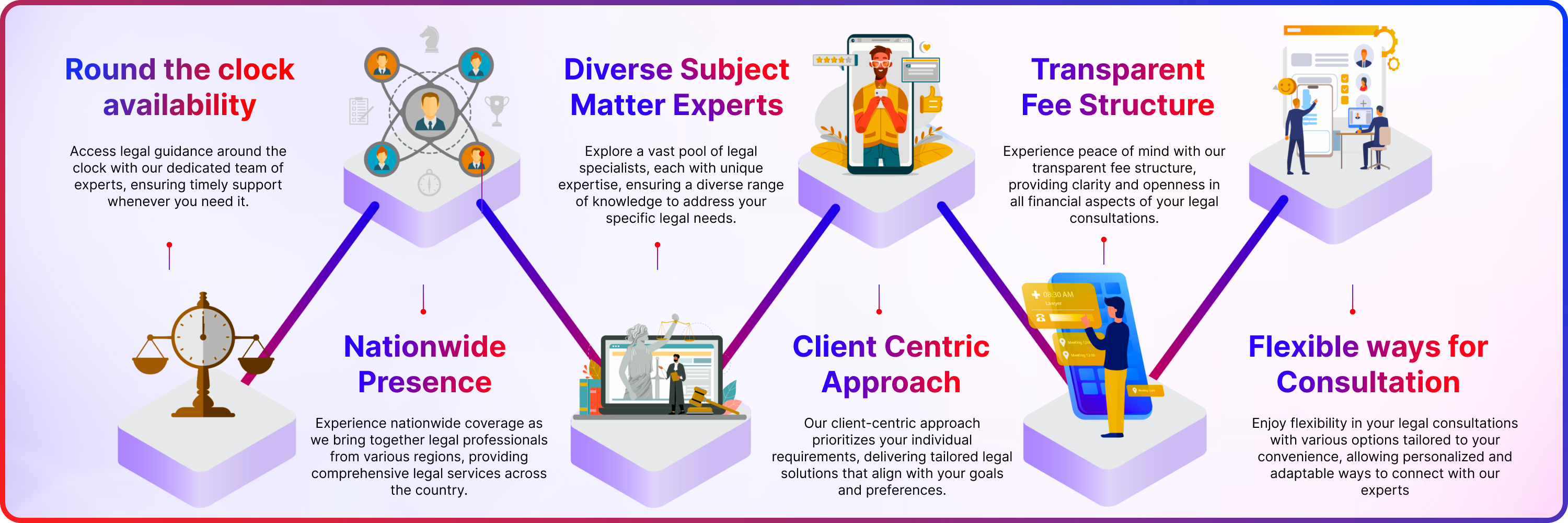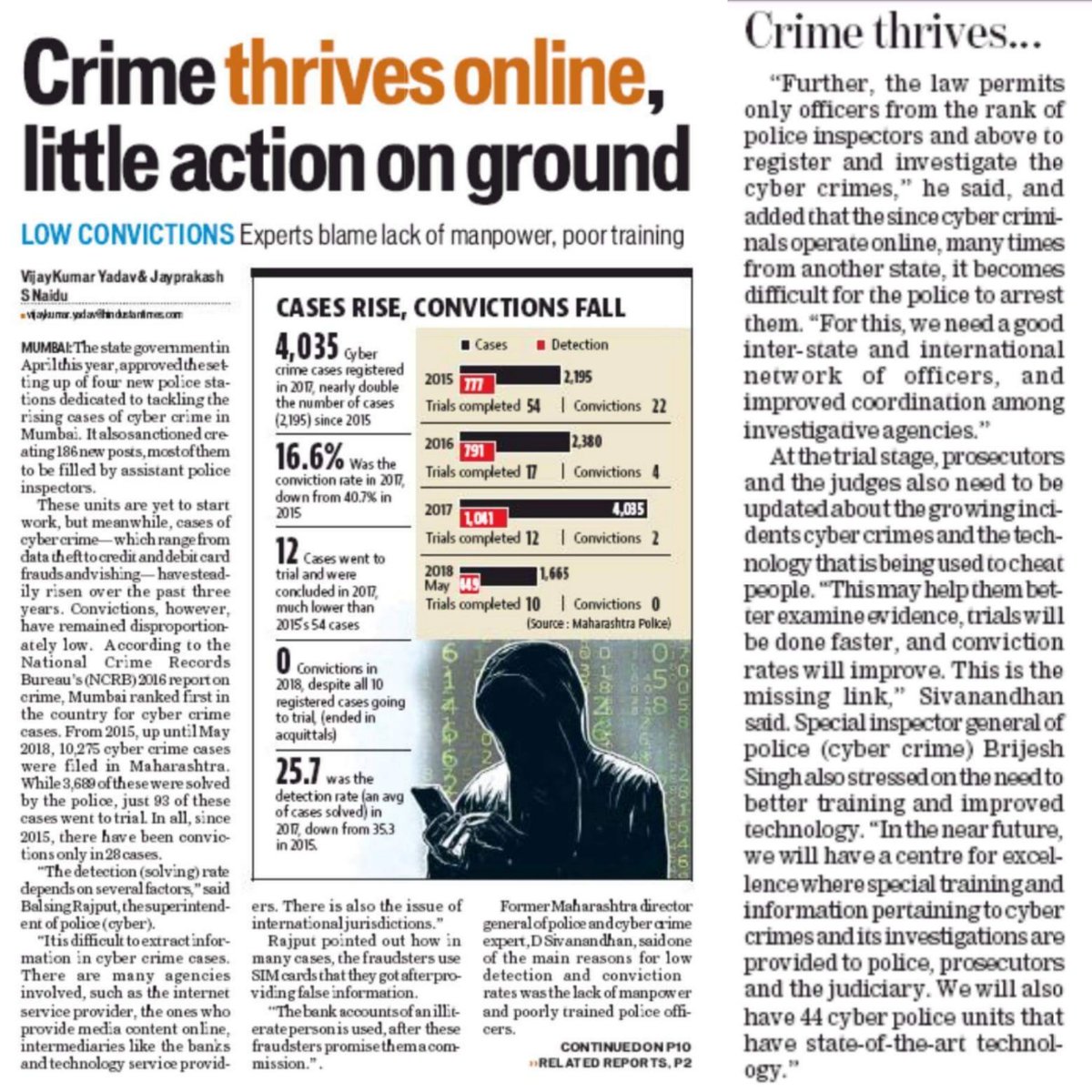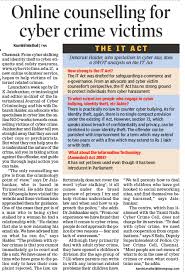In the digital age, where technology is deeply ingrained in daily life, the growth in cybercrimes has become a major global concern. India, a nation rapidly industrializing and home to a burgeoning online population, is not immune to this trend. The country has made great strides in establishing cyber laws to address the challenges posed by cybercrimes, which are crucial to safeguarding its digital ecosystem. Cyberbullying, financial fraud, identity theft, and hacking are just a few of the illicit activities on digital platforms that are known as "cybercrimes".
Cybercrime is the intentional use of technology to carry out an attack, such as hacking a warning system before entering an unapproved location, or to perform traditional crimes like robbery, theft, and false representation. At the individual, state, or national levels, all of this is achievable. There won't be any laws or law enforcement agencies ready to respond favorably to an attack on a nation; instead, the focus will be mostly on applying political, economic, or military pressure.
Cybercrime includes "virtual-only" offenses such as the sharing of illegal images, papers, or private information. This category also includes professional programming teams, who provide digitally defined programs and products to a wide range of users, from governments to anonymous individuals. These products and ...Read More
Cybercrime includes "virtual-only" offenses such as the sharing of illegal images, papers, or private information. This category also includes professional programming teams, who provide digitally defined programs and products to a wide range of users, from governments to anonymous individuals. These products and services include denial of administration attacks and system accountability. Our increased internet usage will lead to a rise in the frequency of inappropriate online activity.
Law enforcement will surely continue to go deeper online as a result of this trend. The Information Technology Act of 2000 covers Cybercrime, yet the term is not defined there. In no act, the Indian legislature has provided a clear definition of cybercrime. However, any illegal behavior done online or with a computer is frequently referred to as "cybercrime".
Cyber Laws in India:
1. Information Technology Act, 2000: The Information Technology Act, which became operative in 2000, governs Indian cyber legislation. This Act's primary objective is to preserve e-commerce’s legal protection by streamlining the process of registering real-time records with the authorities. Many changes resulted from people's inclination to misuse technology and the sophistication of cybercriminals. The Indian Parliament created harsh penalties and fines to safeguard the e-banking, e-government, and e-commerce sectors. These are highlighted in the ITA. All contemporary communication gadgets are now included in the ITA's purview.
2. Indian Penal Code, 1860 (IPC): The following sections of the IPC may be used by law enforcement organizations if the IT Act is insufficient to address a particular cybercrime:
How can Sharks of Law assist you?
1. Is hacking a Cybercrime?
Hacking and cracking are two of the most serious cybercrimes that are currently recognized. Knowing that someone else has accessed your computer systems without your permission and knowledge and has tampered with priceless personal data and information is a terrible feeling. In addition to this, no computer system in existence is impervious to hacking. Everyone knows that any system in the world may be compromised. Recent denial-of-service attacks against well-known commercial websites, such as E-bay, Yahoo, Amazon, and others, have given rise to a new class of cybercrimes that are gradually becoming more and more serious.
2. What is Cybercrime against Government?
Cybercrimes against the government fall under the third category. One specific type of crime in this category is cyberterrorism. The expansion of the Internet has demonstrated that people and organisations are using cyberspace as a means of terrorising national citizens and posing a threat to foreign governments. When someone "cracks&" into a website run by the military or the government, this crime takes the form of terrorism.
3. Is there any comprehensive law on Cybercrime today?
As cybercrime is a relatively young industry with developing cyber laws, there is still more work to be done in establishing the appropriate legal framework to manage and prevent cybercrime. There is currently no comprehensive cybercrime law in existence anywhere in the globe. For this reason, the cyberspace is proving to be a very challenging environment for investigative agency such as the FBI. These diverse cybercrimes come into the murky realm of Internet law that the current laws do not entirely or partially address, at least not in certain jurisdictions.
4. Why do we need to fight Cybercrime?
It is imperative that we all keep in mind that the benefits of constantly evolving technologies have left us with a shared legacy of cyberspace, which we have inherited throughout our lives. Given that cyberspace is the lifeline of the entire universe and that it is here to stay, it is the responsibility of every netizen to work towards keeping it free of criminal activity and other problems.
5. What are examples of cybercrimes?
Cybercrime, also referred to as computer crime, is the criminal use of a computer to further unlawful goals, such as identity theft, fraud, and intellectual property crimes, or privacy violations.
...Read lessConsult with experienced Lawyers across expert areas











Grateful to this company for swiftly resolving the online blackmail and cyber fraud case; their expertise and quick action provided a sense of security and justice.
Read-more

Arpit
Employee
Take a look at the glowing reviews and success stories from some of our happy customers to see how (CompanyName) can help your business achieve its goals.